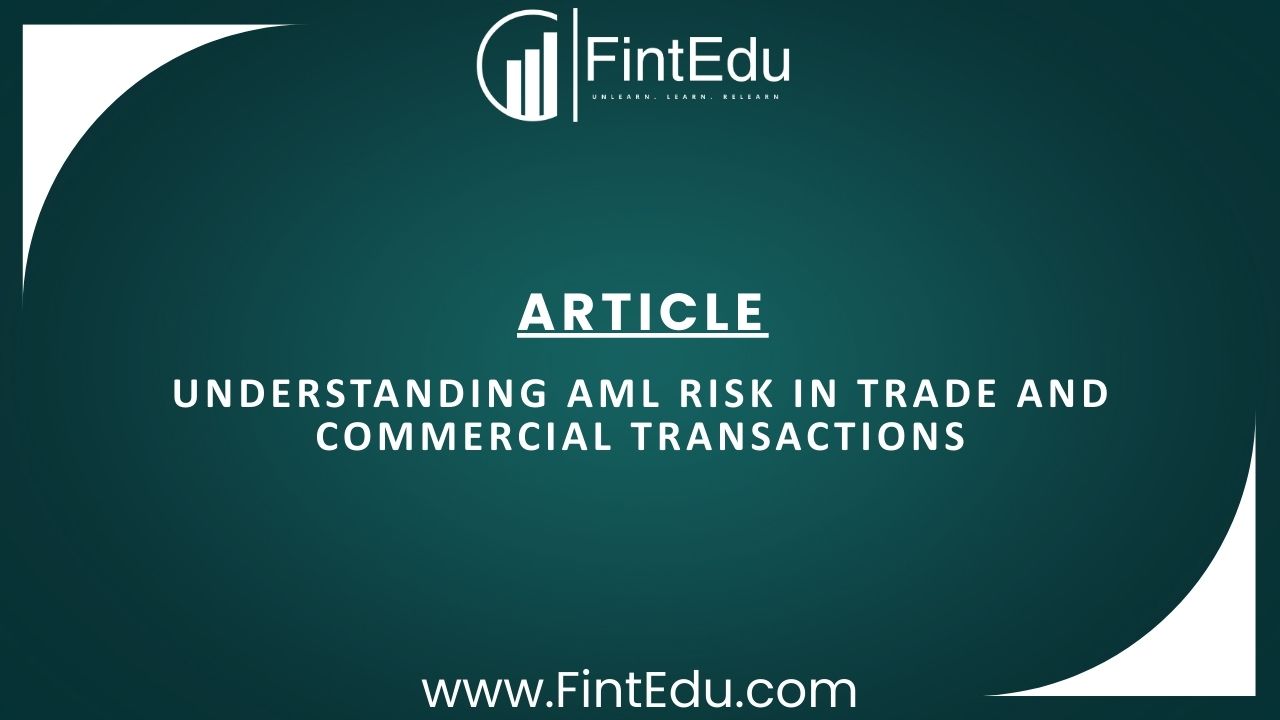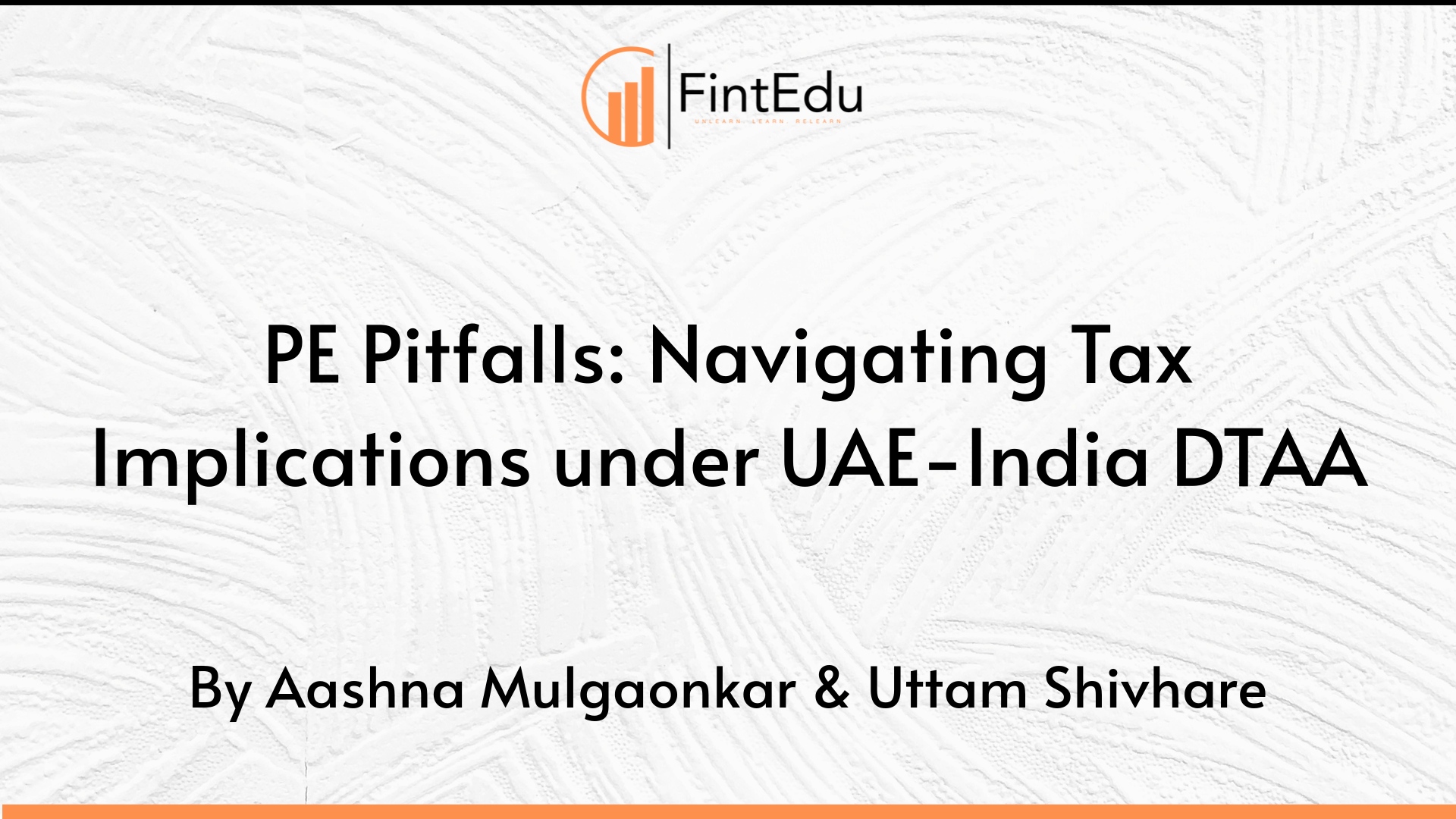LISTEN TO THIS ARTICLE
Some of the Indian businesses are expanded in the UAE and established their economic presence therein through its branches or agents and vice versa, here the issue of double taxation would emerge as the UAE now has Corporate Tax (CT) law. The UAE CT Law has sought to tax income generated within its borders based on the source principle, while the resident state (i.e., India) aimed to tax the foreign income of entities due to their residency and vice versa. To address this, the concept of Permanent Establishment (PE) was introduced in the UAE-India Double Tax Avoidance Agreement (‘DTAA’).
The concept of PE is a cornerstone in international taxation, playing a pivotal role in determining the tax obligations of multinational enterprises. Article 5 of the DTAA meticulously outlines the criteria for what constitutes a PE. This article is essential for understanding how business activities are taxed in the respective countries, ensuring that enterprises are taxed fairly based on their economic presence. By defining the inclusions, exclusions, and the roles of dependent and independent agents, Article 5 helps prevent tax evasion and promotes transparency in cross-border business operations. The forthcoming comprehensive analysis delves into the intricacies of Article 5 of the DTAA, providing clarity on its application and implications for businesses operating between India and the UAE.
What is a Permanent Establishment?
A PE is a fixed place of business through which the business of an enterprise is wholly or partly carried on, encompassing locations such as offices, branches, factories, and construction sites that exceed a specified duration. Additionally, a PE can be established through a dependent agent who acts on behalf of the enterprise and has the authority to conclude contracts, thereby creating a significant presence and control in the host country.
Type 1 PE: Fixed Place PE in the UAE-India DTAA:
A Fixed Place PE in the context of the UAE-India DTAA refers to a fixed geographical location in one of the contracting states (India or the UAE) from which the business of an enterprise is wholly or partly carried on. Through international jurisprudence and the specific provisions of the UAE-India DTAA, the following requisites arise from this definition:
Fixed Place of Business:
The entity should have a fixed place of business in the other contracting state. This could include, among others:
- A factory
- A branch
- A workshop
- Any place of management
- A premises used as a sales outlet for soliciting or receiving orders
- A mine, an oil or gas well, a quarry or any other place of extraction of natural resources
- A farm or plantation where agricultural activities are carried on
At the Disposal of the Entity:
- The fixed place should be at the disposal of the entity, meaning the entity should have reasonable control over the ownership and management of such a fixed place of business. For example, if an entity hires a third-party manufacturer in the other contracting state to manufacture goods on its behalf, and such a manufacturer uses its own premises with no control by the entity, such a place would not be considered at the disposal of the entity.
- The entity should carry on its business through such a fixed place. Activities involving some ‘commercial substance’ must be undertaken from such a fixed place of business. In other words, activities that assist or directly contribute to the generation of revenue must be carried on from such a fixed place.
Construction or Installation PE:
- A building site or construction or installation project constitutes a PE in India or the UAE only if it lasts more than nine months.
Service PE:
- An enterprise from one contracting state providing services, including consultancy, through its employees or other personnel in another contracting state, will be considered to have a PE in the latter if such activities persist for the same or connected projects for a total of more than 9 months within any twelve months.
Exclusions from Permanent Establishment
Certain activities do not constitute a PE, even if they are carried out at a fixed place of business. These include:
- Storage, Display, or Delivery of Goods or Merchandise: Using facilities solely for these purposes does not create a PE.
- Maintenance of Stock for Storage, Display, or Delivery: Similar to the above, maintaining a stock of goods for these purposes is excluded.
- Maintenance of Stock for Processing by Another Enterprise: If the stock is maintained solely for processing by another enterprise, it does not constitute a PE.
- Purchasing Goods or Collecting Information: A fixed place of business used solely for these activities is not considered a PE.
- Preparatory or Auxiliary Activities: Activities that are preparatory or auxiliary in nature do not constitute a PE. This is because such activities do not contribute significantly to the generation of income. Examples include activities like advertising, market research, and collecting information. These activities support the main business operations but do not directly generate revenue.
Thus a Fixed Place PE under the DTAA would include a fixed geographical location of a resident company of one contracting state in the other contracting states where an enterprise conducts its business activities. This includes places like factories, branches, workshops, and sales outlets, or construction or installation projects only if they last more than nine months. However, certain activities such as storage, display, delivery of goods, and preparatory or auxiliary activities do not constitute a PE, as they do not significantly contribute to income generation.
Type 2 PE: Dependent Agents PE in UAE-India DTAA
A Dependent Agent PE arises when a resident enterprise of one state operates in other contracting state through an agent who is not independent and has the authority to conclude contracts on behalf of the enterprise. This concept is crucial in determining the tax obligations of an enterprise under the UAE-India DTAA. Here are the key aspects:
Authority to Conclude Contracts:
- A dependent agent has the authority to conclude contracts on behalf of the enterprise. This authority signifies a significant level of control and presence in the other contracting states.
Habitual Exercise of Authority:
- The agent must regularly exercise this authority to create a PE. Occasional or incidental activities do not suffice.
Non-Independent Status:
- The agent must be dependent on the other enterprise, meaning they do not operate independently and are subject to detailed instructions or control by the enterprise. This includes employees or other personnel who act on behalf of the other enterprise.
Independent status:
- An enterprise is not deemed to have a PE in the other Contracting State merely because it carries on business through an independent agent. This means that the activities of an independent agent do not create a taxable presence for the enterprise in the host country (India or the UAE). The rationale behind this is that independent agents operate on their own account and do not constitute a fixed place of business for the enterprise.
To test whether the Agent Bs independent, the following points should be taken into consideration:
Multiple Clients:
- They usually represent multiple clients and do not work exclusively for one enterprise. This diversification of clients underscores their independent status.
Ordinary Course of Business:
- They perform their activities in the ordinary course of their business, using their own resources and expertise. This means they are engaged in their regular business operations and not specifically tailored to one enterprise.
Risk Bearing:
- Independent agents bear the commercial risk of their activities, unlike dependent agents who typically do not bear such risks. This includes financial risks and operational risks associated with their business activities.
However, there are exceptions to this rule:
- Wholly or Almost Wholly Devoted Activities: If the activities of an independent agent are devoted wholly or almost wholly on behalf of one enterprise, they may not be considered independent. In such cases, the agent’s activities could create a PE for the enterprise.
- Ordinary Course of Business: If the agent’s activities are not carried out in the ordinary course of their business, they may be considered dependent, leading to the creation of a PE.
Thus, a Dependent Agent PE arises when a resident enterprise of one state operates in another contracting state through a non-independent agent with the authority to conclude contracts on its behalf, indicating significant control and presence. For a PE to be established, the agent must habitually exercise this authority and be dependent on the enterprise, meaning they do not operate independently and are subject to detailed instructions or control. Conversely, an independent agent, who represents multiple clients, operates in the ordinary course of their business, and bears commercial risks, would not create a PE for the enterprise unless its activities are wholly or almost wholly devoted to one enterprise and/or not carried out in the ordinary course of their business.
Conclusion:
Hence a resident enterprise of one state having resources or a fixed place of business, or having distributors or sales personnel, or having employees or contractors servicing customers in the other contracting state, could pose the enterprise a risk of PE in the latter state. Understanding these aspects is crucial for ensuring tax compliance and avoiding potential double taxation.
Disclaimer: Content posted is for informational and knowledge sharing purposes only, and is not intended to be a substitute for professional advice related to tax, finance or accounting. The view/interpretation of the publisher is based on the available Law, guidelines and information. Each reader should take due professional care before you act after reading the contents of that article/post. No warranty whatsoever is made that any of the articles are accurate and is not intended to provide, and should not be relied on for tax or accounting advice.
Authors

Aashna Mulgaonkar
Aashna Mulgaonkar, a Chartered Accountant and Tax Consultant with nearly two decades of UAE experience, excels in Auditing, Company Formation, Taxation, and compliance areas like VAT, AML, UBO, ESR, and Taxes. She has led Finance and Administration departments across diverse industries and played key roles in mergers and acquisitions. An ex-banker, Aashna mentors students in Finance and Accounting and serves on the Executive Committee of the ICAI Dubai Chapter.

Uttam Shivhare
Uttam Shivhare, is a Chartered Accountant and district topper, the first in his family and village to achieve this. Currently a Senior Executive at TransPrice Tax Advisors LLP, he specializes in transfer pricing and taxation advisories. Uttam is also an author on Taxguru and holds a Bachelor's degree in Accounting and Finance from IGNOU.
Contributor
Related Posts

The UAE has introduced a new top-up tax regime as part of its commitment to global tax reforms und...
Read More
Anti Money Laundering is often viewed as a complex regulatory requirement. In reality it plays a sim...
Read More
Trade and commercial activity form the backbone of regional economic growth. Large volumes of goods ...
Read More